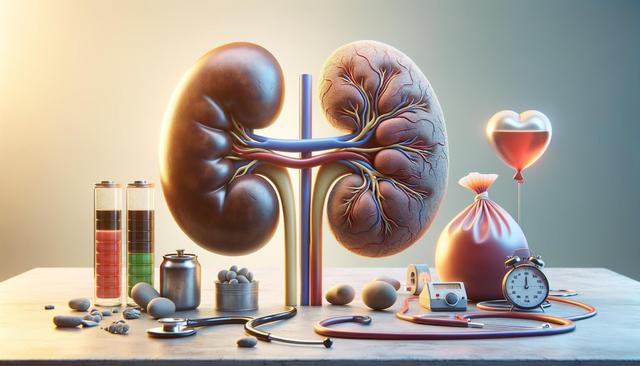Understanding Early Warning Signs of Kidney Disease
Recognizing the initial symptoms of kidney disease can play a crucial role in slowing its progression. Many early signs are subtle and may be mistaken for other conditions, which makes regular health checkups essential. Some of the most common early indicators include fatigue, swelling in the ankles or face, changes in urination patterns (such as increased or decreased frequency), and persistent nausea. These symptoms reflect the kidneys’ reduced ability to filter waste and balance fluids and minerals in the body.
Other potential warning signs include:
- Foamy or bubbly urine, which may indicate protein leakage
- Muscle cramps, especially at night
- Difficulty concentrating or mental fog
- Persistent itching due to waste buildup in the blood
- High blood pressure that is difficult to control
By identifying these symptoms early, patients and healthcare providers can take proactive steps to manage kidney health and delay progression to more severe stages, like stage 4 CKD.
Stage 4 CKD: What It Means and Why It Matters
Stage 4 kidney disease signifies that kidney function is severely impaired, typically with an estimated glomerular filtration rate (eGFR) between 15 and 29 mL/min. At this point, patients are at a high risk of progressing to kidney failure, where dialysis or a transplant may be required. However, understanding the condition and managing it effectively can help slow down further decline.
Common complications of stage 4 CKD include:
- Severe anemia
- Bone disease
- Electrolyte imbalances
- Cardiovascular issues
Monitoring symptoms, adhering to a specialized treatment plan, and maintaining communication with healthcare providers can make a significant difference. Lifestyle changes, including dietary adjustments and controlling underlying conditions like diabetes and hypertension, are essential during this stage. Patients often ask what is the best thing to drink for your kidneys, and the answer typically includes fluids that support hydration without straining kidney function, such as water, herbal teas, or certain fruit-infused waters—depending on individual dietary restrictions.
Alternatives to Dialysis in Stage 4 Kidney Disease
While dialysis is often discussed as the primary treatment for advanced kidney disease, it’s not the only option available, especially in stage 4. Some individuals may delay or avoid dialysis through comprehensive medical management. This can involve a combination of medications, lifestyle changes, and close monitoring of kidney function. Known as conservative care, this approach focuses on improving quality of life and managing symptoms without initiating dialysis.
Alternative strategies may include:
- Strict control of blood pressure and blood sugar levels
- Tailored dietary plans
- Managing anemia with medications and supplements
- Reducing protein intake to lessen kidney workload
It’s essential to work with a nephrologist to determine the most suitable approach. In some cases, preparing early for a kidney transplant evaluation may be considered as a long-term solution, offering a better quality of life than dialysis for some patients.
The Role of Diet in Managing Kidney Disease
Diet plays a central role in managing kidney disease, particularly when it intersects with conditions like diabetes and high blood pressure. A carefully planned diet can reduce the burden on the kidneys and help control related health issues. The diet for diabetes high blood pressure and kidney disease typically emphasizes low sodium, controlled carbohydrate intake, and limited protein, phosphorus, and potassium levels.
Key dietary recommendations include:
- Choosing unsalted or low-sodium options
- Limiting red meats and opting for plant-based protein sources
- Monitoring blood sugar with low-glycemic foods
- Staying hydrated with kidney-friendly drinks
Knowing what to drink to keep kidneys healthy is just as important as food choices. While water remains a primary recommendation, drinks like cranberry juice (in moderation), herbal teas, and lemon water may support kidney function. However, always consult a healthcare provider before making significant dietary changes, especially in stage 4 CKD.
Monitoring and Seeking Medical Support
Ongoing monitoring is essential in managing stage 4 chronic kidney disease. Regular lab tests, including eGFR, creatinine, and urine protein levels, help assess how well the kidneys are functioning and guide treatment decisions. Early detection of worsening symptoms can prompt timely interventions that may delay or prevent the need for dialysis.
Patients should maintain regular appointments with a nephrologist and follow any prescribed treatment plans closely. Support from dietitians, social workers, and primary care providers can also be valuable components of care. Emotional well-being should not be overlooked, as chronic illness can have significant psychological effects. Support groups, counseling, and patient education resources can help individuals and families navigate the complexities of kidney disease.
Knowing what is the best thing to drink for your kidneys and understanding your treatment options can empower you to make informed decisions. Staying proactive, asking questions, and involving a multidisciplinary healthcare team can make a meaningful difference in managing stage 4 CKD.
Conclusion: Taking Control of Kidney Health
For individuals facing stage 4 chronic kidney disease, recognizing early warning signs and understanding the full range of treatment options is vital. While this stage marks a serious decline in kidney function, it is not without hope. Through informed choices, such as adopting a diet for diabetes high blood pressure and kidney disease, staying hydrated with kidney-supportive fluids, and exploring alternatives to dialysis, patients can actively participate in their care journey. Collaborative efforts between patients and healthcare providers can help manage symptoms, slow disease progression, and maintain quality of life. Early action, consistent monitoring, and a commitment to healthy habits are key to navigating the challenges of kidney disease with clarity and confidence.



Leave a Reply